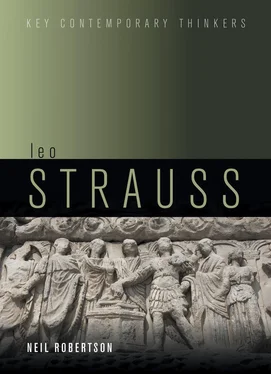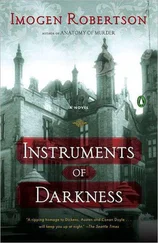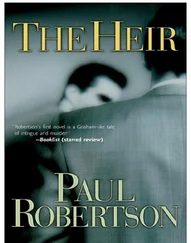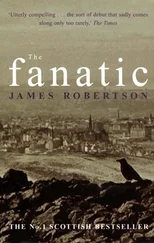In Maimonides, Strauss found a particular way of framing and understanding the theological-political problem. The term “theological-political” Strauss borrowed from the title of a book by the seventeenth-century Jewish philosopher Spinoza. Strauss understood the phrase to refer to the need of philosophy to establish itself and to defend its freedom from the forms of authority that belong to religion as well as to political power. In this book, we will look at these two tensions in turn. In chapter 2, we will focus on the tension between philosophy and religion, the tension between “Athens” and “Jerusalem.” Strauss argues that the biblical revelation, specifically Judaism, presents the most radical challenge to philosophy and its claims to determine the question of the best way to live on the basis of natural reason alone. For Strauss, the question of “the best life” is the orienting question of human life, and so the contest between reason and revelation is the most basic human question. Strauss’s interest in this debate is not simply to secure the claims of reason against any competitor, but more fundamentally to see in the debate itself a shift in the meaning of philosophy. For Strauss, the standpoints of reason and revelation are mutually irrefutable. But recognizing and engaging this “problem” for Strauss gives birth to a deepening understanding of what philosophy is and demonstrates its inherent limits, showing that its very context is constructed of fundamental and permanent problems.
The Exoteric/Esoteric Distinction
One of Strauss’s fundamental and recurring arguments is that philosophy, as the life given to questioning in the pursuit of wisdom, is inherently opposed to the nature of the “city” (or, more generally, of society) as a way of life founded upon opinion and above all upon belief in the justice of the laws of the city. In order that philosophers would not be persecuted nor the city be harmed, according to Strauss, philosophers began to conceal their true teaching behind an outer or “exoteric” teaching that would, at least on the surface, suggest that philosophy supported the ways of the city. In other words, the tension between philosophy and the city gave birth to an art of writing for philosophy: the art of esoteric writing.
The exoteric/esoteric distinction can appear to be a plausible claim that philosophers, facing potential persecution, have not always been open about their thoughts, and so interpreters must “read between the lines.” At one level, Strauss is certainly saying this. Importantly, however, he connects this historical point to the deeper claim that underlying what appears to be an occasional strategy is a fundamental opposition between philosophy and the city.
Here we can see that the exoteric/esoteric distinction is also a manifestation of another crucial aspect of Strauss’s thought: “political philosophy.” For Strauss, political philosophy is not primarily a branch or field of philosophy; rather, it is a way in which, or an awareness with which, philosophy is practiced. Political philosophy is philosophy aware of its political context and beginning point. Strauss argues that classical political philosophy is especially self-aware in this regard. It is characteristic of modern political philosophy to practice esoteric writing in the service of seeking to change the world and so eventually to bring about a modern world in which a free, enlightened people can live without the need for such devices. Strauss’s judgment, arising from his sense of nihilism, is that this modern project has failed. It is only in classical political philosophy, which is aware of the irreducible difference between philosophy and the city, and which practices esoteric writing in the service of that difference, that we can find a stable standpoint and so escape a nihilistic result.
Classical Political Philosophy
A great deal of Strauss’s standpoint rests on his understanding of classical political philosophy, and many of his writings can be seen as contributions to his recovery of classical political philosophy. Strauss articulates this recovery through the interpretation of classical texts, above all texts that have as their focus the figure of Socrates, with whom Strauss associates the origin of political philosophy. The texts central to this for him are the dialogues of Plato, as well as dialogues by Xenophon, Aristophanes’ play The Clouds , and some comments by Aristotle. However, it would be fair to say that Strauss’s consideration of classical political philosophy extends to more than these works: he includes not only other works of classical philosophy and classical literature, but beyond that (and in a more complicated sense) the work of the great Jewish and Islamic philosophers, above all Alfarabi (872–950) and Maimonides, whom Strauss understands to be continuing in the practice of classical political philosophy. Still, the central and defining figure in Strauss’s account of classical political philosophy is the Socrates of Plato’s dialogues.
Strauss’s recovery of classical political philosophy is, as we have seen, a response to the crisis of modernity: nihilism. Further, in Strauss’s view, historicism – with what he sees as its moral relativism and moral nihilism – represents the most extreme manifestation of that crisis. For Strauss, what classical political philosophy does is to give access to a reality untouched by history: nature. But the “nature” Strauss finds in classical political philosophy is not a metaphysical account of nature. The traditional reading of Plato and Aristotle and other ancient philosophers finds that Plato’s and Aristotle’s standpoints bring to light a metaphysical realm of ideas or forms that underlie and cause all reality; this accords with what Nietzsche and Heidegger find. Strauss, following his esoteric reading of texts, argues that this surface or exoteric account is not the true standpoint of classical political philosophy. For the careful reader, argues Strauss, the true teaching of classical philosophy, and above all that of Plato, shows itself to be focused on philosophy as ceaseless questioning, rather than on a metaphysical solution to those questions. What Plato teaches esoterically is Socrates’ “knowledge of ignorance,” philosophy as the life dedicated to the quest or pursuit of knowledge, rather than to its possession in and by metaphysical knowledge. For Strauss, this is crucial if classical political philosophy is not going to be subject to the critiques of Nietzsche and Heidegger, who argue that the metaphysics of Plato and Aristotle in fact leads to modern nihilism.
For Strauss, the possibility of an ahistorical, non-metaphysical political philosophy rests upon recovering the Socratic beginning, seeing philosophy as arising from the philosopher entering into the agora , the space of public opinion, to begin a process of questioning and dialectic that seeks to uncover the abiding reality – nature – that public opinion points to. What this means is a turning to what people say, to their speeches, and not trying to seek an underlying causality that treats what is said in a reductionist way. In doing this, the fullness of humanity can be recovered: the “high” is not seen from the perspective of the “low.” Classical political philosophy’s turn to speeches can be seen as the beginning necessary to avoid the outcome of moral nihilism that belongs to modernity. Strauss’s whole work of scholarship is, then, a sustained effort to recover this way of doing philosophy, as the thing most needful in the face of the crisis of the West.
The Critique of Modernity
The final theme we will explore is Strauss’s explanation of the history that has led to what he sees as the modern crisis. The first thing to understand is that history is, for Strauss, fundamentally a history of ideas. The modern world, or “modern project” as he sometimes calls it, is not primarily a result of social, economic, or other historical causes; it is primarily the work of changes in thought, and above all the work of changes in political philosophy. The most fundamental change was a shift in the meaning of political philosophy in the sixteenth and seventeenth centuries so that it was no longer seen to be a life in pursuit of theoretical knowledge, but became dedicated instead to the alteration of political reality. For the modern, knowledge became no longer the knowledge of what is, but of how to change what is. In short, political philosophy became dedicated to effecting historical change. More specifically for Strauss, in the modern project historical change was aimed at constructing a world dedicated to fulfilling human needs and purposes.
Читать дальше












